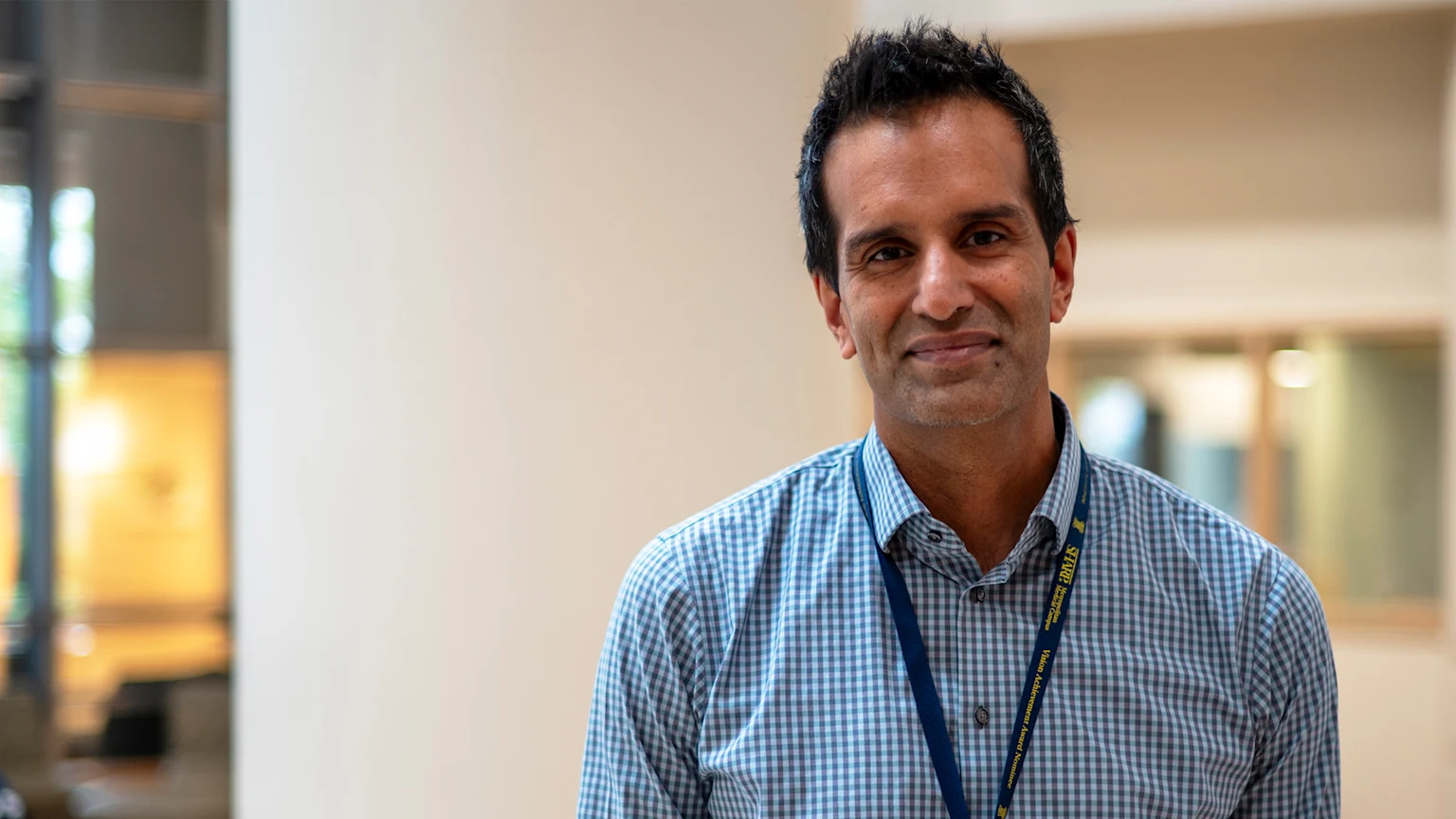
7 medical services Medicare doesn’t cover
If you need one or more of these services covered, consider a Medicare Advantage plan.
As director of the Neonatal Research Institute (NRI) at Sharp Mary Birch Hospital for Women & Newborns, Dr. Anup Katheria operates by two principles:
He would not conduct a study that he would not subject his own kids to.
He is not going to choose research over a patient.
When it came to delivering their baby at Sharp Mary Birch, this, says Lizzy Garvin, gave her and her husband, Clint Garvin, “a lot of confidence in her care.”
Lizzy was 24 weeks pregnant with her first child when doctors told her the daughter they named Zoey was going to be born nearly three months prematurely due to cervical incompetence. This is when the cervix cannot stay closed during pregnancy and leads to preterm labor.
Through the shock and worry that Lizzy needed to deliver her daughter so soon, Dr. Katheria explained to the Garvins what the team at Sharp would do to give Zoey the best chance at survival. He reassured them that her health was the utmost priority.
“That made us more comfortable,” Clint says.

Over 3,4000 newborns have enrolled in Dr. Katheria's studies, including Zoey.
Making significant strides at the NRI
Over 10 years at the NRI, Dr. Katheria has conducted more than 63 clinical trials and has been published in multiple distinguished medical journals, from the Journal of the American Medical Association (JAMA) to the Journal of Pediatrics. He says bringing the research infrastructure of a university hospital to a community hospital like Sharp Mary Birch has been a success story over the last decade.
Philanthropic funding, including a $5 million gift from the Alexander and Eva Nemeth Foundation as well as over $10 million in federal grants, have helped the NRI make significant strides.
“Birth doesn’t happen only from 9 to 5,” Dr. Katheria says. “It happens at 3 in the morning, and you need someone there to enroll the patient and to talk to the families about our research studies. The Sharp HealthCare Foundation has supported us to give us overnight coverage.”
More than 3,400 newborns have enrolled in Dr. Katheria’s studies, which focus on resuscitation, the lifesaving procedure used when an infant is having difficulty breathing.
“When a baby is first born, what you do in those first few seconds of life can have a huge impact on not only whether that baby will survive but also how well that baby will live,” Dr. Katheria says. “If I’m able to give that baby the right therapies when they start taking their first breath, maybe they’ll have less brain injury and fewer lung problems and heart problems by getting things situated in those first couple of minutes.”
Dr. Katheria and the NRI have used several different therapies to determine best methods of practice. They have tried keeping the newborn babies attached to the umbilical cord for longer amounts of time, squeezing the cord to give babies extra blood, and performing resuscitation to give the baby more oxygen while still attached to the umbilical cord.
“We’re always looking to improve care for everything that we do, and looking at what evidence we can use to change practice,” Dr. Katheria says.
Caring for baby Zoey
Babies born under 28 weeks are at a higher risk of brain bleeds and long-term health problems, according to Dr. Katheria. It is that population the NRI focuses on. When Dr. Katheria approached the Garvins about participating in the studies, he explained the entire process thoroughly and answered all their questions.
“We could mentally prepare for what was going to happen,” Lizzy says. “We have so much trust in her team here.”
As stressful as the experience was, Lizzy remembers how calm all the doctors in the room were during Zoey’s delivery. They had a timer and were calling out instructions by the second.
“They were all so in their lane and in their skill set and knew what they were doing — it was a well-oiled machine,” Lizzy says.
Zoey weighed 1 pound, 6 ounces and was about 13 inches long when she was born. The Garvins have gone to Sharp Mary Birch every day since early June to spend time with their daughter.
They have an immense trust for Dr. Katheria and his team, from the doctors in the room to those at the follow-up clinic.
“I think we owe Zoey’s life to all of these people doing their work, and if our experience can help even one other family, it’s the least we can do,” Clint says. “It’s a small way to say thank you for everything they’ve done for her.”
Learn more about high-risk pregnancy; get the latest health and wellness news, trends and patient stories from Sharp Health News; and subscribe to our weekly newsletter by clicking the "Sign up" link below.

Our weekly email brings you the latest health tips, recipes and stories.